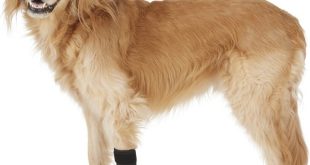Congestive Heart Failure (CHF) is usually associated with humans…but it is something that can also affect your pet.
And then it comes to a condition like this, smaller dogs are more susceptible to CHF than bigger dogs – although, any dog can get CHF.
In general, Chihuahuas, Yorkies, and poodles are the most common breeds that are affected by this disease. You may notice your pooch having a decrease in activity and especially wet coughing at night.
If you recognize any of these factors, you should immediately check with your vet. Your vet will run tests and take X-rays to get a confirmatory diagnosis and check the amount of fluid buildup in your pet’s lungs, and the size of its heart.
And if your dog has gone too long without being treated, it can end up with end-stage heart disease which will end up with fluid in his chest and abdomen.
CHF (Congestive Heart Failure) is eventually a terminal disease if left uncontrolled.
Here’s some brief info about CHF (Congestive Heart Failure) that you’ll find helpful – noticeable symptoms and Causes
CHF is a heart disease usually caused by either dilated cardiomyopathy, or valvular insufficiency.
CHF is known to be commonly caused by valvular insufficiency. It is estimated that 80% of CHF are caused by MVD (Mitral Valve Disease). However, there are other causes such as;
- Disease of the heart muscle (cardiomyopathy),
- Irregularities of rhythm,
- And narrowing of some major blood vessels.
MVD (MITRAL VALVE DISEASE) results in left-sided congestive heart failure and will progress into both sides of the heart if left untreated.
Congestive heart failure occurs secondary to the mitral valve disease.
You may notice your dog coughing (almost like trying to clear its throat), coughing up phlegm, and constantly needing to drink water.
When your dog does this persistently, combined with a high respiratory rate, and a heart murmur; these signs are indicative of a heart failure. The coughing is usually due to inflammation around your dog’s lungs and fluid in its heart.
Pacemakers can be implanted for some congenital heart diseases to manage irregular heartbeats in younger dogs.
But for your average middle-aged dog that develops heart failure, surgery is generally not indicated…
The drug, Pimobendan is a heart medication designed for the treatment of congestive heart failure in dogs…
This means you can use this drug for your canine.
Note; Your pet could possibly be allergic to Pimobendan, and while this medication has its side effects, it is generally considered safe for dogs if used accordingly.
To find out all you need to know about Pimobendan…
Read through the following;
- What is Pimobendan?
- How does Pimobendan Work?
- Is this drug for your dog?
- How to administer this drug to your pet.
- Recommended dosage of Pimobendan for your dog.
- Contraindications of Pimobendan for dogs.
- Side effects of Pimobendan in dogs.
- Natural Remedies and ways to assist your dog in fighting Congestive Heart Failure.
- Conclusion
What is Pimobendan?
Pimobendan is also known as Vetmedin, Heartmedin, or Arcadi.
And this drug is made available in 1.5, 2.5, 5 and 10 milligrams of chewable tablets.
It is FDA-approved for the treatment of heart failure in dogs caused by MVD (Mitral Valve Disease) or weak heart muscle commonly known as canine dilated cardiomyopathy.
How does Pimobendan Work?
This drug helps to improve your dog’s heart action by making the heart muscle pump harder, and by relaxing the blood vessels to allow blood flow easily.
Many factors might affect the effectiveness of Pimobendan on your dog.
Therefore, it is important to discuss with your veterinarian when deciding the ideal treatment for a dog as other drugs may cause problems when taken with Pimobendan.
Also ensure to tell your vet the following;
- What medications you are giving your pet, as well as the amount and schedule of each. This includes; vitamins, supplements or any form of herbal therapies.
- About any diseases your pet may have now, or has had in the past.
- If your pet is pregnant or nursing
This drug performs its function via the following mechanism.
Increased Cardiac Contractility
The positive inotropic effects of Pimobendan are mediated through a combination of;
- Increased cyclic adenosine monophosphate mediated by phosphodiesterase (PDEII) inhibition and sensitization of the cardiac contractile apparatus to intracellular calcium.
This calcium sensitization results in a positive effect without increasing your dog’s myocardinal oxygen demand.
- Vasodilation- this is the widening of blood vessels resulting from the relaxation of smooth muscle cells within the vessel walls, in the large veins, large arteries, and small arterioles when this drug is ingested by your pup.
- Anticoagulation- it increases the time it takes for blood to clot.
In a study of healthy dogs, Pimobendan mildly inhibited platelet aggregation but at a concentration well above a clinically relevant dose.
How safe is this drug for your dog?
This drug is FDA approved, and is thus considered safe for the treatment of dogs with Congestive Heart Failure so far as prescriptions are followed accordingly.
Although, you are advised to check with your vet before administering this drug as some dogs tend to have allergic reactions to Pimobendan..
How to Administer Pimobendan to your Dog
Pimobendan can be given to your pup by mouth in the form of a chewable tablet.
This tablet can be given with food or on an empty stomach and care must be taken to give exactly as prescribed.
In some countries, Pimobendan can also be given to your pooch as injection, or by mouth in the form of an oral liquid.
Should you happen to miss a dose, you should never give your pet two doses at the same time, or give extra doses to your pet.
Recommended Dosage of Pimobendan for your Dog
Truth is, it’s always better to go according to your vet’s prescription.
But in cases where it is absolutely necessary to give this drug to your pet especially if you’re unable to reach your vet…
Administer 0.25 to 0.3 mg per Kg body weight with a 12 hours interval.
Pimobendan is said to start takingeffect between 1-2 hours after administration.
However, you should always check the prescription label to ensure that you are administering the drug correctly. Also make sure you store this medication at room temperature, away from children and other animals.
Contraindications of Pimobendan for Dogs
Pimobendan should be used with caution in the following canines;
- Dogs with uncontrolled heart rhythm problems.
- Pets born with congenital heart defects.
- Dogs that suffer from diabetes or other serious diseases.
- Pregnant or nursing dogs.
This drug should also not be used in dogs with conditions such as;
- Hypertrophic cardiomyopathy or aortic stenosis. Your vet will determine if your dog suffers from any of these conditions before administering this drug.
- And dogs that have a previous history of allergic reactions to it.
Side effects of Pimobendan
With use of this, here are some of the most common side effects;
- Gastrointestinal (loss of appetite and diarrhea).
- Your pet may also experience lack of energy or weakness.
When this happens, don’t get too worried unless they are severe.
And in cases of severe side effects, inform your vet immediately.
Other serious side effects that may indicate a problem are;
- Racing heartbeat.
- Collapsing or fainting.
- Bleeding or bruising.
- Increased belly fluid bloating.
- Trouble breathing or wheezing.
- Jaundice.
- Rash or skin redness.
Remember to contact your veterinarian immediately if you see any of the above mentioned effects.
Note that an overdose of this drug is very dangerous, and can result in fast heartbeat which potentially puts your pup’s life in danger.
If an overdose happens, quickly call your veterinarian or an animal poison control center for advice and proper followup treatment.
As a bonus, here are some…
Natural Remedies and ways to assist your dog in fighting Congestive Heart Failure
As a dog parent, it is important that you assist your dog in any possible way you can to help it in its battle with Congestive Heart Failure.
You can do this by cutting back on some dangerous substances that can further worsen your dog’s condition, or by introducing substances that can improve your dog’s condition into its meal.
Some natural remedies to Congestive Heart Failure;
Diet
The most important thing is ensuring that your dog does not have excessive sodium in its diet. You should make sure that whatever you feed your dog or add to its meal in the form of supplements does not have excess salt in it as this could make it even more difficult for your dog’s heart to pump.
Essential Fatty Acids
This could be in the form of flax oil, or fish oil capsules. Essential fatty acids have been shown to be beneficial for most types of heart diseases.
Dandelion leaf
This is a natural diuretic and helps to take away the fluids. You can administer a tincture dosage of about half a milligram of the tincture per 20 pounds of body weight once or twice daily.
One of its major benefits is that it contains additional potassium. You can also give this to your dog in tea form
Nettle Tea
This serves as a mild diuretic and is quite high in magnesium. Some dogs with underlying heart disease have been seen to have remarkably low magnesium levels, and nettle tea serves as a supplement for that and potentially helps if that could be one of the underlying causes.
Conclusion
Remember that this medication is best given on an empty stomach. And if you happen to see any abnormal reactions, report to your vet immediately.
You should never overdose your dog on this medication, and also ensure to administer exactly as prescribed.
Congestive Heart Failure is not curable but early detection and treatment helps a lot and can help control it successfully for a long time.
Congestive Heart Failure is ultimately a terminal disease if left uncontrolled. You must be proactive with it.
 Total Pooch Dog Supplements, Tear Stain Removers, De-wormers, Tylosin for Dogs and other great products.
Total Pooch Dog Supplements, Tear Stain Removers, De-wormers, Tylosin for Dogs and other great products.



